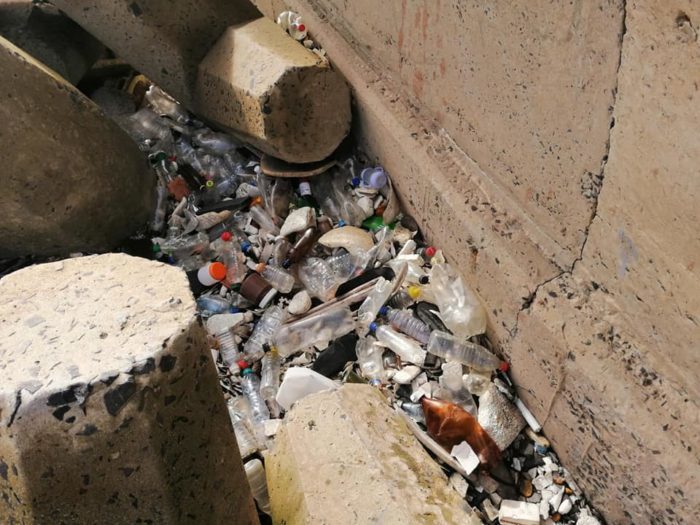A local community called Help Up, along with local residents and the City of Cape Town worked together to help clear up the plastic and other waste surrounding the mouth of the Black River estuary earlier this week.
Help Up is a community that aims to clean up Cape Town’s environment and which employs and trains homeless individuals to ensure that rubbish is eliminated from the natural ecosystem. Referred to as ‘avatars’, the homeless people involved in Help Up are given an opportunity to earn an income along with learning more about the environment.
Locals who want to get involved can pledge R150 for a three-hour river cleanup by contacting 062 783 229 via WhatsApp.
In a most recent social media post, Help Up says that the build-up of waste and plastic at the mouth of the river prevents nutrients from reaching smaller marine life such as fish, frogs and more, resulting in them dying.
“Vital nutrients in the form of microplanktons need to shift into the river via the tides to feed the little critters that feed the grubs of insects that feed the frogs, fish, birds and Cape clawless otters which live in this river. We HAVE to keep our estuaries, or what’s left of them, tidy,” the post reads.
Here is a before and after image that shows how just a few people can work together to make a big positive impact on the environment.

The three teams worked tirelessly to clear up the mountains of waste found in the area.

Smaller fish were found dead and washed up on the shore – indicating the impact of the waste in preventing nutrients and food they need from reaching the waters.

With a truckload of rubbish being transported, the reality of the amount of plastic and waste that piles up here can be seen in the images.


These local heroes are working together to make a difference in Cape Town and ensure the survival of our local wildlife and plant species.

Picture: Help Up, Facebook

